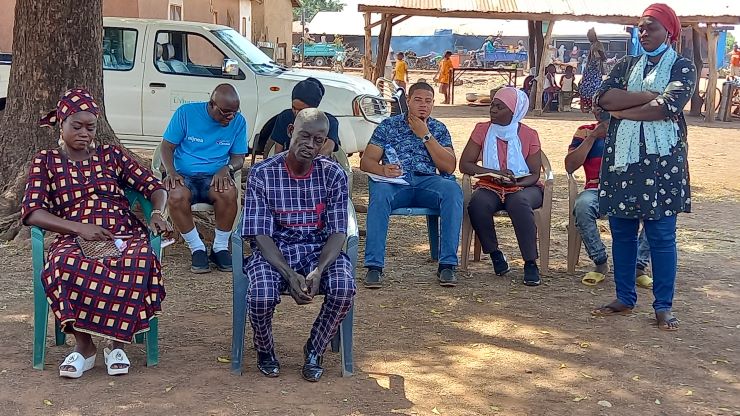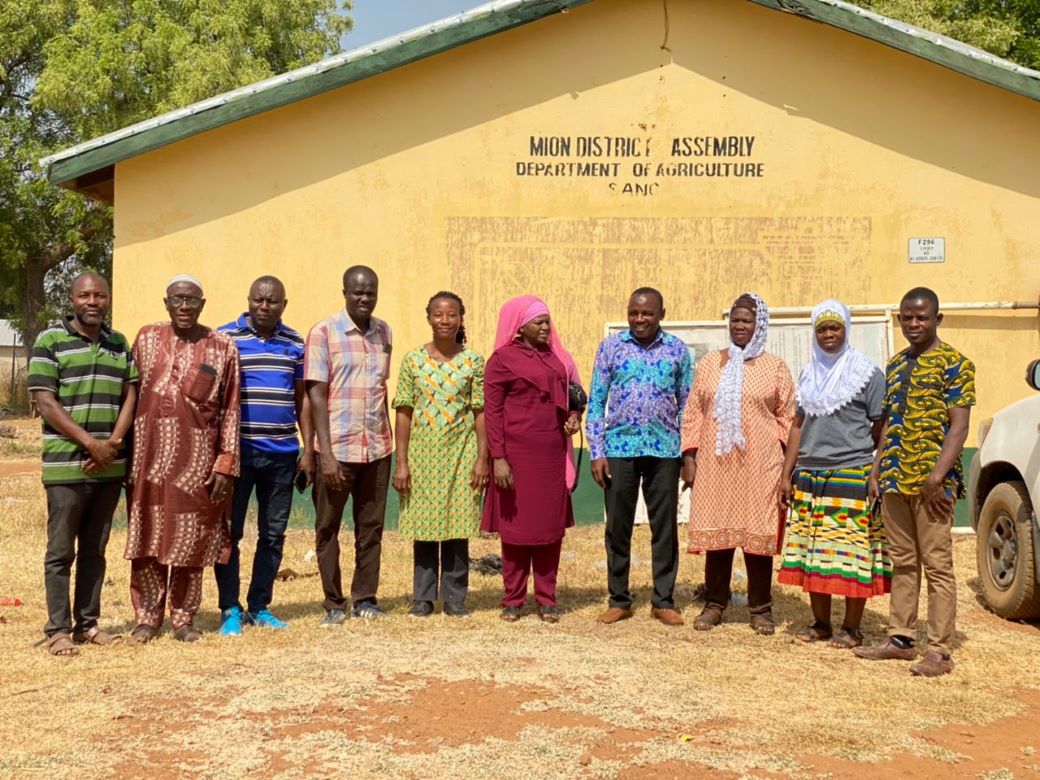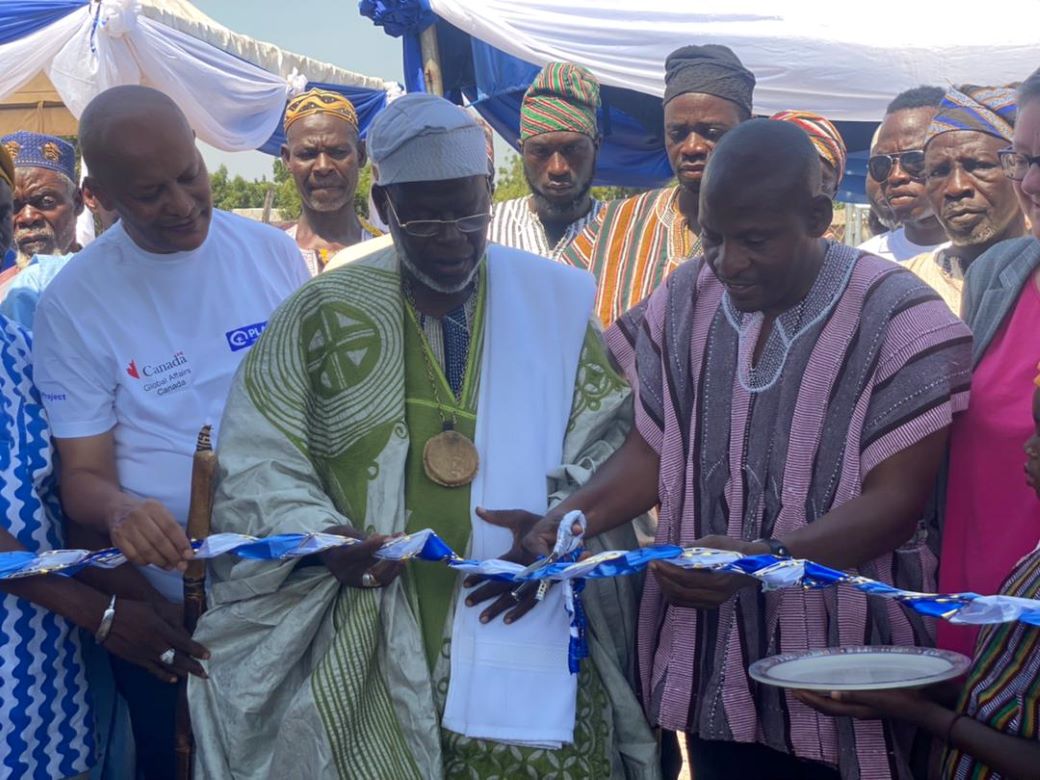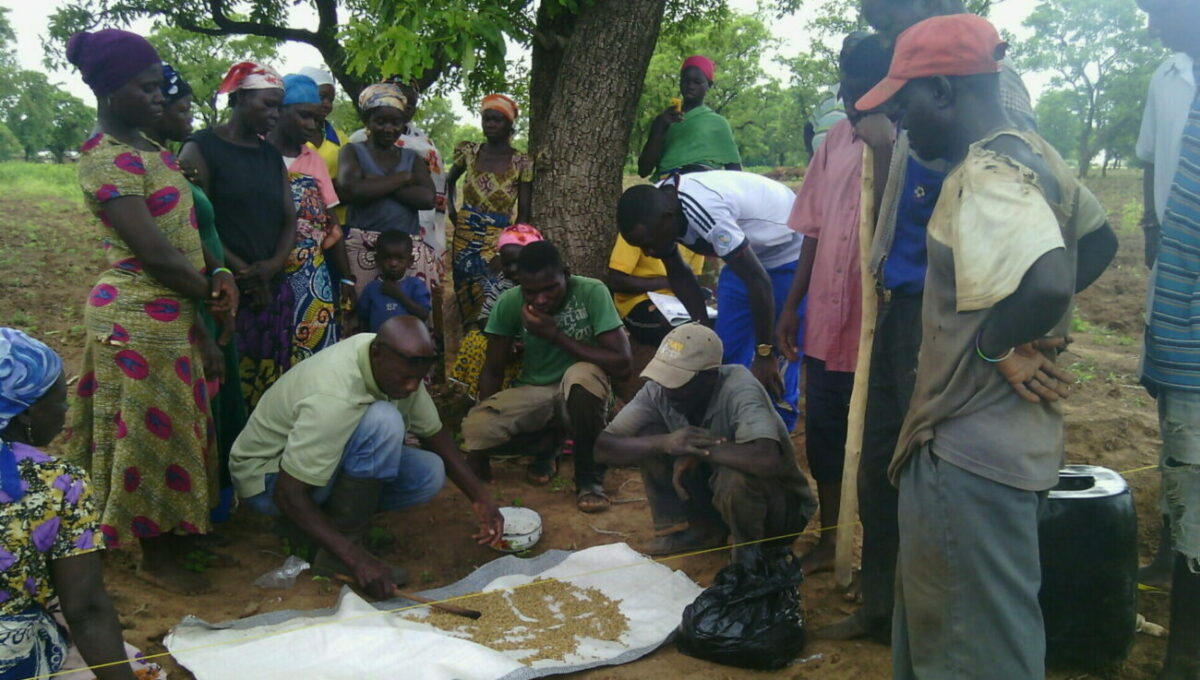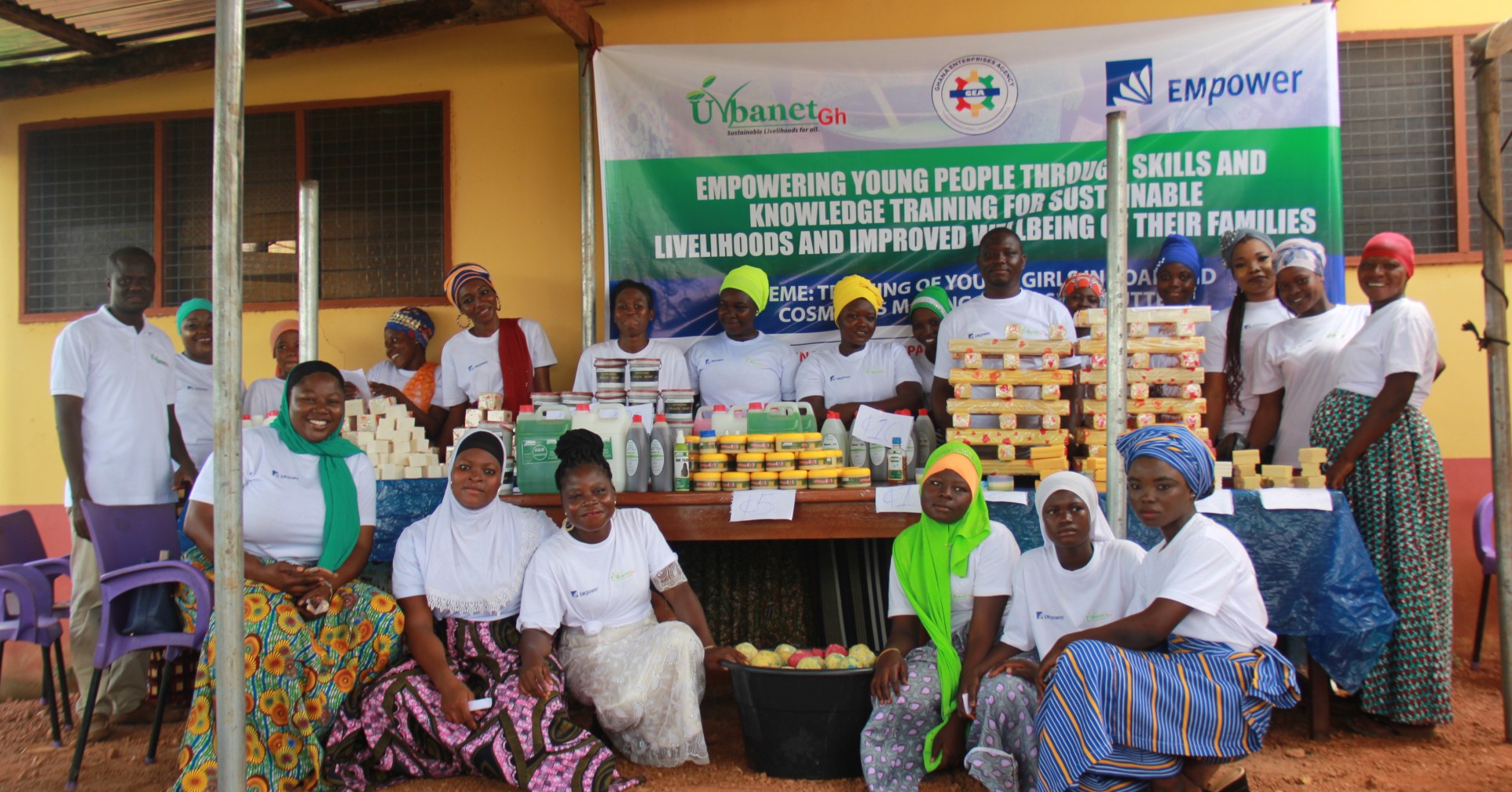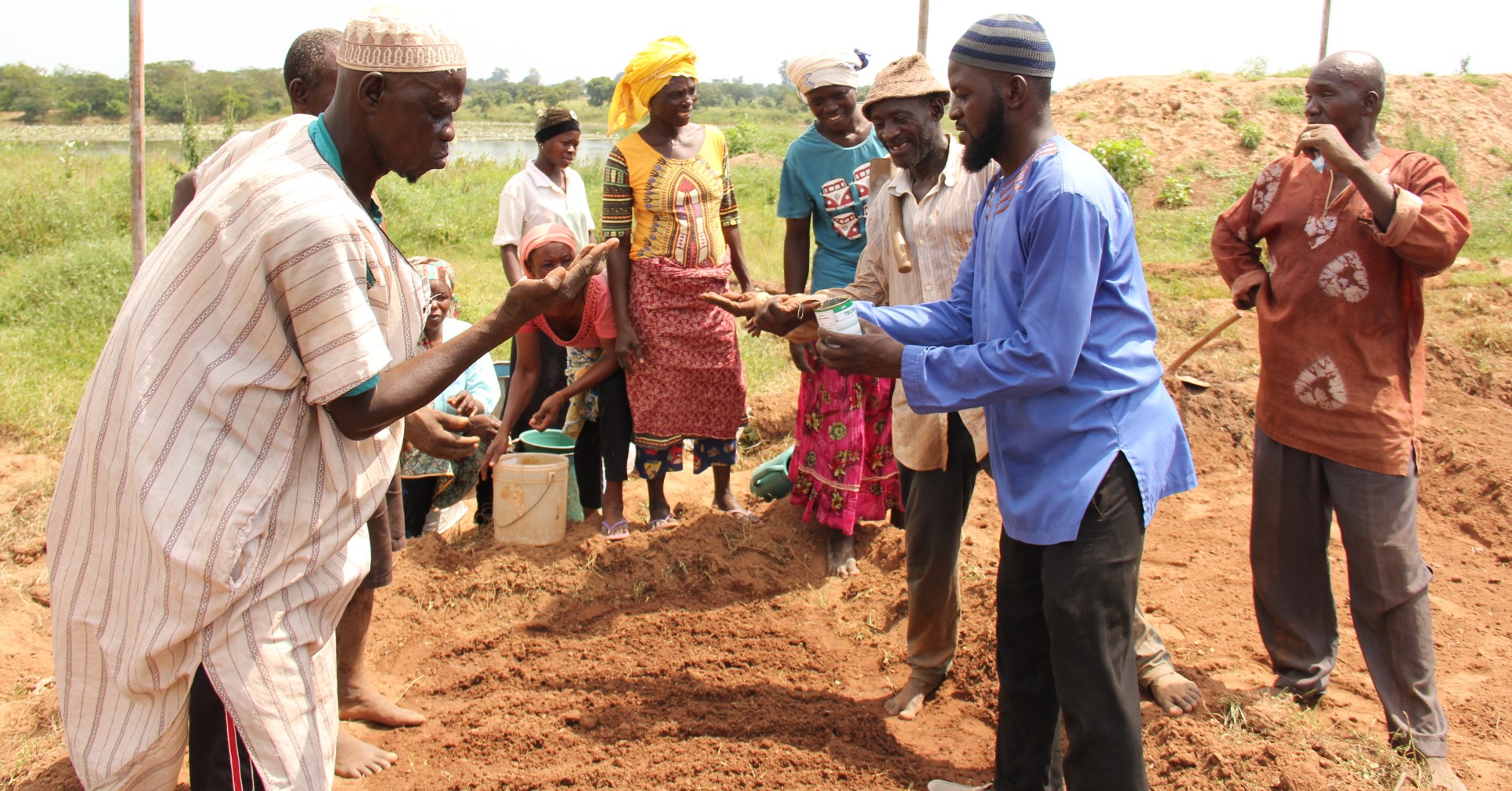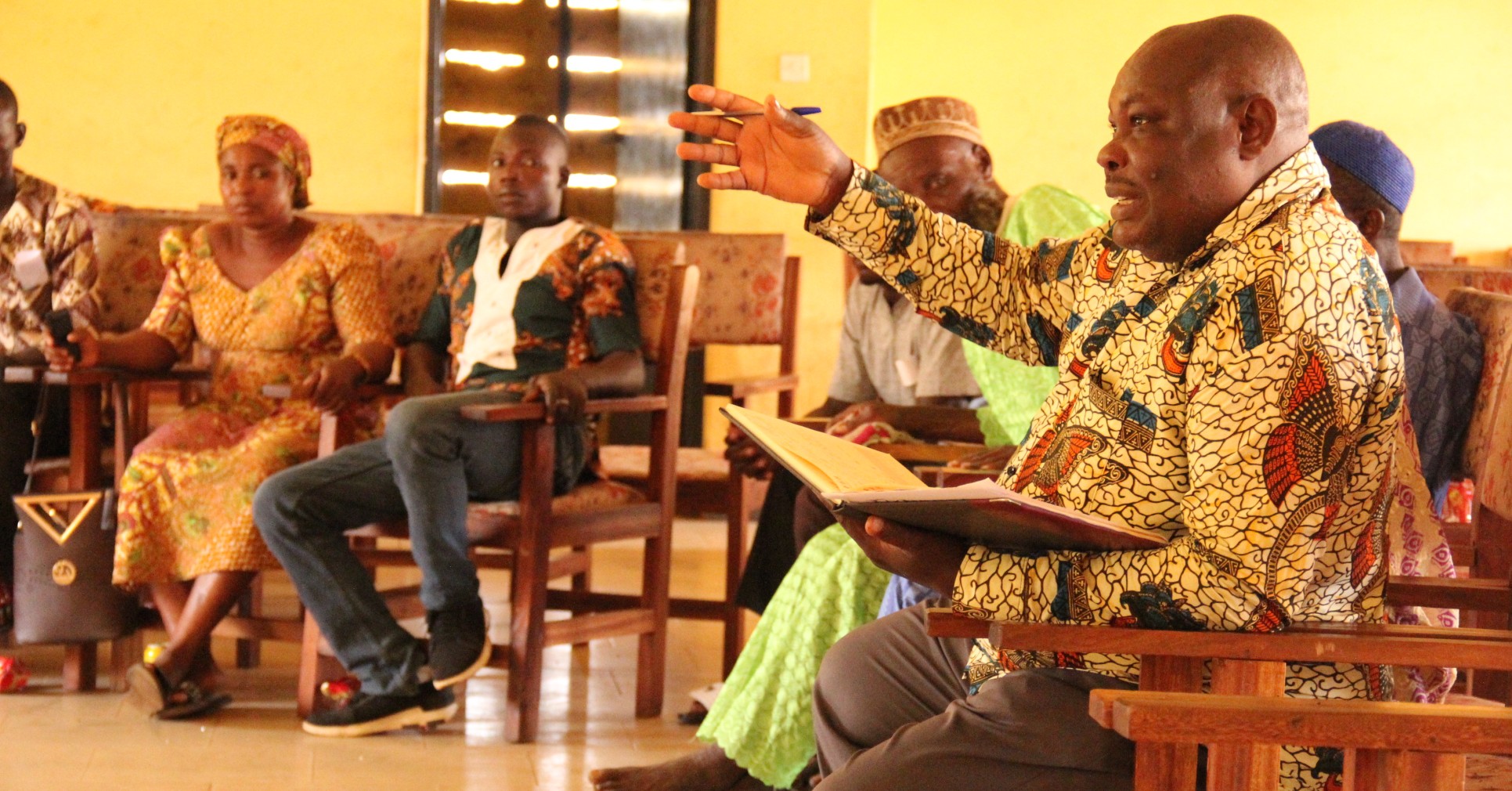The third outcome of the Greater Rural Opportunities for Women II project (GROWII) seeks to ensure; Gender equitable participation of women in decision-making within their households and the communities. To ensure gender equity amongst women and men and to ultimately achieve gender equality at the community level, URBANET (As a KFP), in partnership with the Mennonite Economic Development Association (MEDA), is implementing the Gender Model Family (GMF) program in Zoggu and Jegun Communities in the Nanton District.
As part of the initial processes towards full implementation of the GMF program, URBANET/MEDA did a community entry and sensitization in the two (2) communities (Zoggu|Jegun) to seek the community buy-in and also ensure ownership and sustainability of the program.
Gender Model Family (GMF) is a program that encourages and gives husbands the knowledge and tools to live equitably/equally with their wives and to ensure that their boys and girls are given the same opportunities to develop their potential. It influences how couples/partners share household chores, how family members communicate and how parents interact with their children. One of the key benefits of this program is that it builds trust, fosters mutual respect and peaceful co-existence, which are vital in building and ensuring sustainable community development.
© GROW2 is funded by Global Affairs Canada (GAC)
#GenderModelFamily
#GenderEquity
#GenderEquality
#WomenInDecisionMaking
#SustainableCommunityDevelopment
#URBANETGhana

